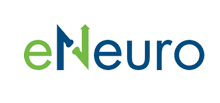Prof Christophe Bernard eNeuro Chief Editor – A video interview
This video used automatic subtitles and may not be completely accurate.
How to keep innovating and improving the academic publishing system? Those are the questions we asked Prof Christophe Bernard, Professor at INSERM in France and Chief-Editor of the Open Science and online journal eNeuro.
Highlights of the interview with Christophe Bernard:
About eNeuro
eNeuro is the Society for Neuroscience’s open-access journal. The journal is known to publish high-quality research in Neuroscience, and for establishing innovative strategies such as double-blind review, negative results, replication studies and registered reports.
In which way eNeuro is different from other journals?
You have two different types of scientific journals: for-profit journals and non-profit, which are usually owned by scientific societies. The goal is not to make money but only to publish science. In non-profit journals, the papers are handled by active Neuroscientists, while in for-profit journals, the reviewing leaders are not active scientists.
All scientists had the experience of getting one positive review and one negative review, and in most cases, the editor will reject the paper based on the negative review.
When I created eNeuro, I decided to follow the steps of eLife where the reviewing editor made a synthesis of the reviewer’s comment and the reviewers and reviewing editor discuss the outcome of the paper. They must all agree on the results.
Many Authors are dissatisfied by the outcomes of journals, and they appeal because they don’t understand why negative and positive always make a negative. At eNeuro, we only get 4/5 appears per year, meaning that rejected authors know why and there is no reason to appeal. The review must be helpful.
“I insist that reviewing editors provides facts. The review must be helpful. We are here to help authors to make better science.”
One of the first innovations was to introduce the double-blind review process. The reviewers do not know the author of the paper. We also remove everything that could identify the authors: “as we described in X” is replaced by “as described in X”. Because of this system, our published papers are gender-equal. We remove bias when we can.
eNeuro also publishes negative results, which is very important to avoid the repetition of studies that leads nowhere. This is very important to the scientific community to know that this is a negative result. There is no point in doing these experiments again.
(Negative Results) are very important to the scientific community. There is no point in doing these experiments again.
You implemented quite a few innovative strategies such as “Registered Reports”, can you explain the concept? Was it challenging to implement?
The concept is straightforward, but it does not apply to every scientific project, such as exploratory projects, but it works well for preclinical studies: You have a hypothesis that you want to test, you plan your experimental protocol, which you submit to the journal and what it is reviewed. The hypothesis and the experimental protocol are reviewed, and it can be improved, but once it is accepted, you have guaranteed publication whatever the outcome. But, you need to follow precisely the protocol submitted. If you do something else and submit the manuscript, the paper will be reviewed as a novel manuscript without any guarantee.
This strategy comes with two advantages:
- You get guaranteed publication.
- Your protocol is validated, and reviewers may point at weaknesses and suggest an improvement.
It was very easy to implement and to design. But it is no well used by the community. Maybe it is not known enough because it is even an excellent opportunity to evaluate your protocol before doing the experiments. It even shortened the process since you avoid the reviewing process, which can take 6 months or a year because you did not think about the reviewer.
Registered reports and publishing negative results is not something that we see a lot in the publishing industry; why is that?
The answer is quite easy for negative results: Everyone is after a high impact factor or the highest possible impact factor. Negative results nobody is going to cite it. It’s useful to the community, but it will not be cited.
At eNeuro, I don’t care about the impact factor. I care about the reputation of the journal in terms of excellent science. The impact factor is a wrong metric anyway.
At eNeuro, I don’t care about the impact factor. I care about the reputation of the journal in terms of excellent science.
Do you plan to implement other innovative strategies in the editorial process?
Yes, we have a series on experimental biases. There are always problems with the interpretation of genetic studies, optogenetics, chemogenetics, behavioural studies. So we published these commentaries that help the communities build better projects or improve their interpretation.
Another thing that I am thinking about is the future of the publishing world? Are we going to keep for-profit journals?
There is a lot of discussion for the possibility to have a post-publication review: You write and publish your paper as it is, and the community can review it so the authors can change and curate the paper with time. The aim of this strategy is to accelerate the publication of the work.
This is an essential question, but it isn’t easy to do.
For example, you are a journal with a good reputation, and you decide to publish a paper that was not peer-reviewed, and it happens that this paper contains manipulated data. That would be considered damaging for the paper. Then what do you do?
I will post a blog post on eNeuro, asking the community to comment about it and share their ideas (To be Published).
We don’t know what’s going to happen, but clearly, many scientists are not happy with the current publishing landscape.
How about the relationship between the need to obtain funding through grants and needing high impact factors publication to obtain funding?
This is the core of the problem. The current grants evaluation used that kind of index: the journal’s impact factor where you published. Or even if you apply for a position or a promotion.
If we decide as scientists not to look at the impact factors of the journals as a criterion to evaluate the value of an individual, then we don’t need this criterion.
But if we carry on validating the system, then the current system will continue. It’s not them imposing something onto us. It’s just us accepting this and playing the game. For-profit journals would be stupid not playing the game as they get money out of this. This is where there is a lot of thinking that needs to take place to reform the system.
The best actors of change are the young generation.
How do you see the future of scientific publications? What do you wish the future of scientific publication to be?
In an ideal world, it would be like in physics, where scientists post their papers and the community evaluate them directly in an archive system. When these papers have been reviewed for a time and deemed “perfect”, you send them to a journal and they would be accepted most of the time without even sent for review because it already been done. At this point, you might not even need a journal if the community has validated it.
Can we do that in other fields like Neuroscience? It’s more difficult to review something that you cannot check. You have to take for granted what the author has done in the experiments. But theoretically, it is possible to review each other.
Look at BioRxiv (the preprint server for biology); I put my papers on the repository but never received one comment. In physics, they have been doing that all the time and for a while now. It is not a habit in Neuroscience yet.
I would love to publish my paper online, get it commented by the community, make my conclusion stronger, maybe add experiments, and then voila. I put my brick in the wall of knowledge.
Any last comment or advice for our audience?
If you see something wrong: Act. Be proactive. Get together now that you have social media.
You are the driving force, the PhDs, Postdocs, assistant professors. You are the future. So be proactive and keep in mind that if you decide to give your money to for-profit journals, you can bias the system; I prefer non-profit organisations.
Where can you find Christophe Bernard?
- eNeuro
- Team PhysioNet — INS
- Christophe’s Twitter
Selection of eNeuro Editorials:
- The Beauty and the Beast (April 2021)
- Estimation Statistics, One Year Later (April 2021)
- On Fallacies in Neuroscience (December 2020)
- The Good Reviewer’s Guide to the Publishing Galaxy (September 2019)
- Open Source Tools and Methods: A New Category of Short Papers to Share Knowledge, Accelerate Research, and Acknowledge Those Who Develop Such Tools and Methods (September 2019)
- Changing the Way We Report, Interpret, and Discuss Our Results to Rebuild Trust in Our Research (August 2019)
- Diversity: The Art of Reviewing Independently Together (September 2018)
- Gender Bias in Publishing: Double-Blind Reviewing as a Solution? (June 2018)
- Introducing Registered Reports (March 2018)
- Improving the Way Science is Done, Evaluated, and Published (November 2017)
- Transparency Must Prevail (September 2017)
Acknowledgement
We want to thank Yanasivan Kisten for editing this video interview, and for Isaak Tarampoulous for his work as Webmaster!
- Prof Christophe Bernard eNeuro Chief Editor – A video interview - September 5, 2021
- Tim Ward from Intermedia Communication – a video interview - November 4, 2020
- Sign your Science - September 22, 2020
- Dr. Dennis Eckmeier
– Science for Progress Podcast - August 20, 2020 - Raven the Science Maven - August 18, 2020
- Dr Mark Temple: DNA Sonification or when Scientist are musicians - August 5, 2020
- How we hear and brain trickery - July 3, 2020
- Be a Master of Scientific illustration - June 26, 2020
- Dr Tullio Rossi Animate your Science- a video interview - May 30, 2020
- Infographics and Covid-19 - May 3, 2020




Leave a Reply
Want to join the discussion?Feel free to contribute!